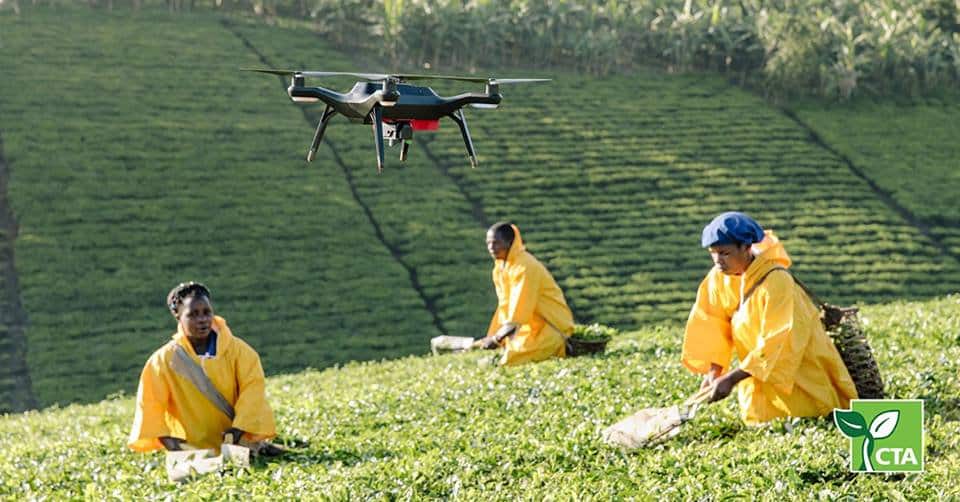The potential for new technology to support African smallholders receives insufficient attention, says director of the Technical Centre for Agricultural and Rural Cooperation (CTA)
The huge promise of technology to help improve productivity, profitability and sustainability for African smallholders should be higher on the international agenda, the Global Forum for Food and Agriculture heard.
Michael Hailu, Director of the Technical Centre for Agricultural and Rural Cooperation (CTA), told the meeting in Berlin that leveraging technology to increase access to information could help farmers boost their incomes by up to 60 per cent but needed greater support.
Speaking at the event attended by agriculture ministers, Mr Hailu said the private sector and policymakers needed to do more to help improve connectivity among African farmers to support greater mechanisation and precision agriculture.
“African leaders have committed themselves to creating new jobs for at least 30 per cent of the youth in agricultural value chains by 2025, but most young people have little or no interest in agriculture,” Mr Hailu said.
“With the average age of farmers in Africa still at 55-60 years old, we must ask ourselves how we can transform the rural landscape and make it much more attractive for young people. Digitalisation can provide a potentially profitable entry point for them, with the added benefits of boosting productivity, income, increased food and nutrition security.”
This year’s Global Forum for Food and Agriculture focused on “smart solutions for future farming”, with an emphasis on the opportunity of digitalisation.
Yet while smallholders produce around 70 per cent of Africa’s food supplies, only 60 per cent of Africans have internet connections, limiting their access to key information and knowledge such as weather forecasts, market data and farming advice.
And without such information, African smallholders are likely to remain vulnerable to more frequent extreme weather events, impacting food security and livelihoods.
CTA, an EU-funded institution, works across Africa, the Caribbean and Pacific, to support the roll-out of new services and innovations using cutting edge technology.
This has included providing farmers with instant weather updates via SMS, or supporting them with satellite-gathered data and analysis to help guide decisions on fertiliser or pesticide use.
Mr Hailu highlighted the opportunities to transform agriculture further with blockchain technology to improve transparency and efficiency, and artificial intelligence to automate information services.
“Digitalisation affords young entrepreneurs the opportunity to create disruptive business models leapfrogging traditional stages of development,” Mr Hailu added.
Mr Hailu called for the mobilisation of young African innovators, entrepreneurs, investors and governments to capitalise on digitalisation’s potential.
Over the last three years, CTA’s Pitch AgriHack challenge has reached more than 800 young e-agriculture start-ups throughout the Africa, Caribbean and the Pacific, providing training, mentoring and business development skills and seed funding. Several of the supported start-ups have grown into successful businesses serving close to one million smallholder producers.
He called for governments and private sector to step up to the challenge and help equip smallholders with the latest tools to be more productive and resilient.
